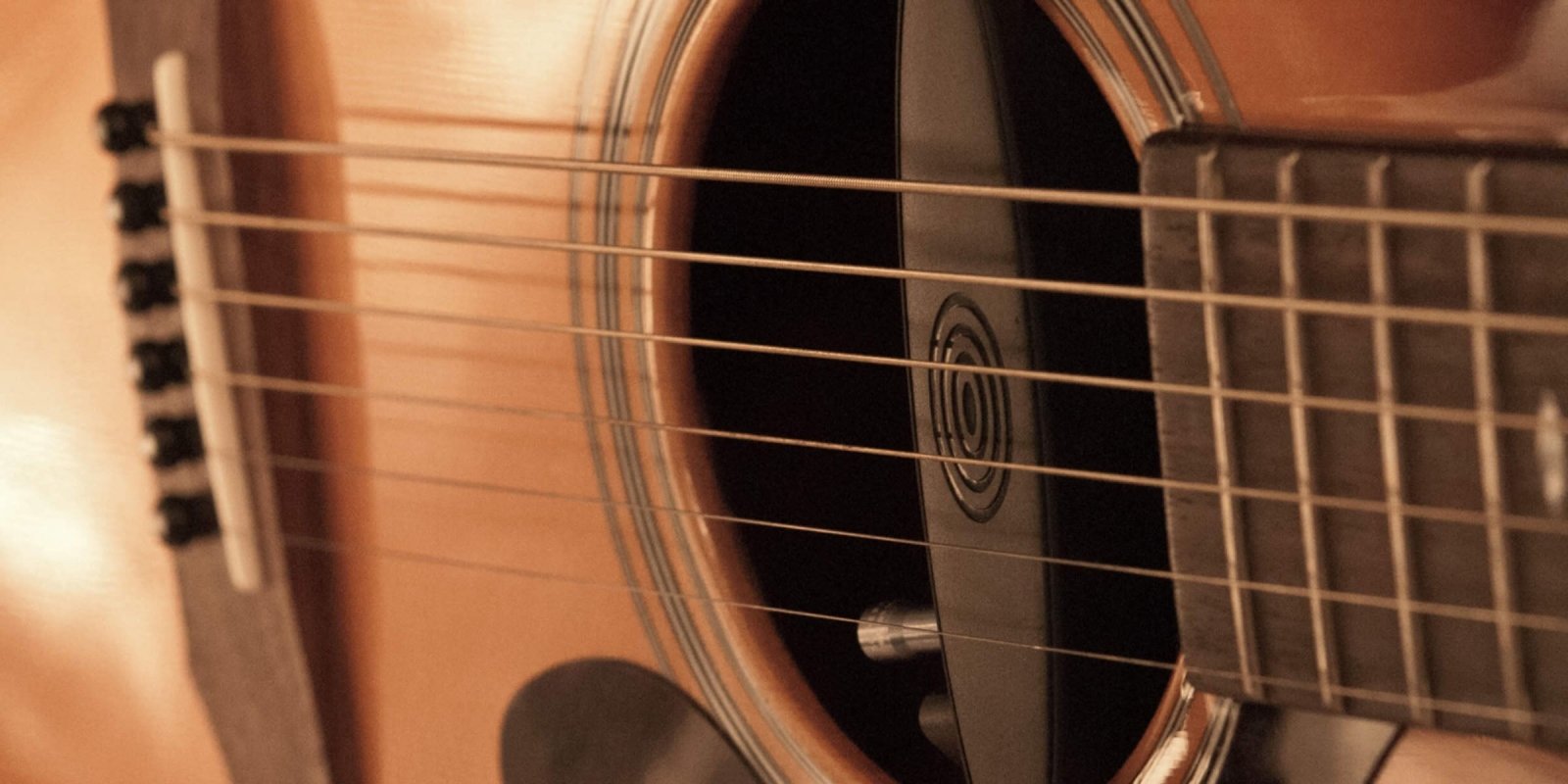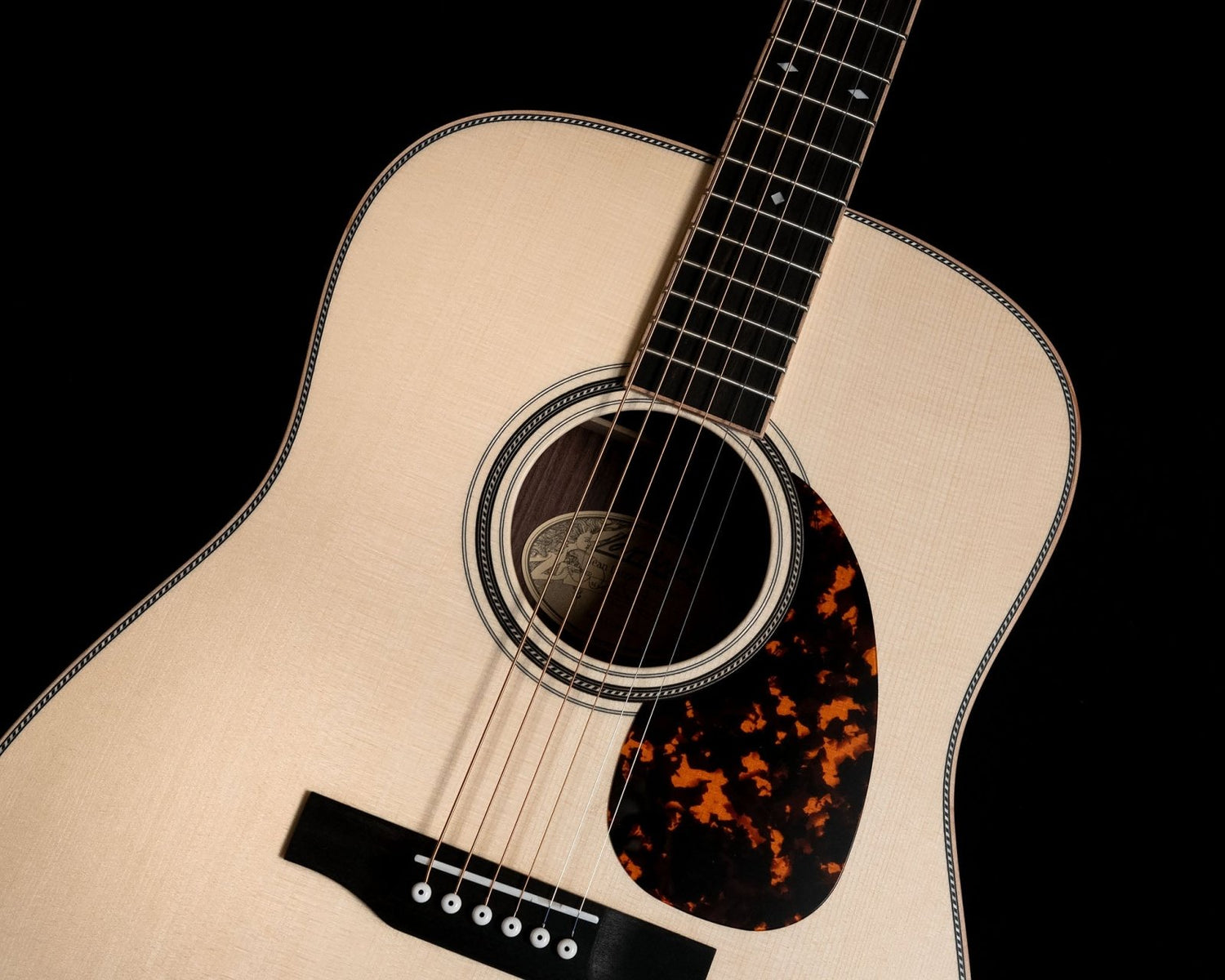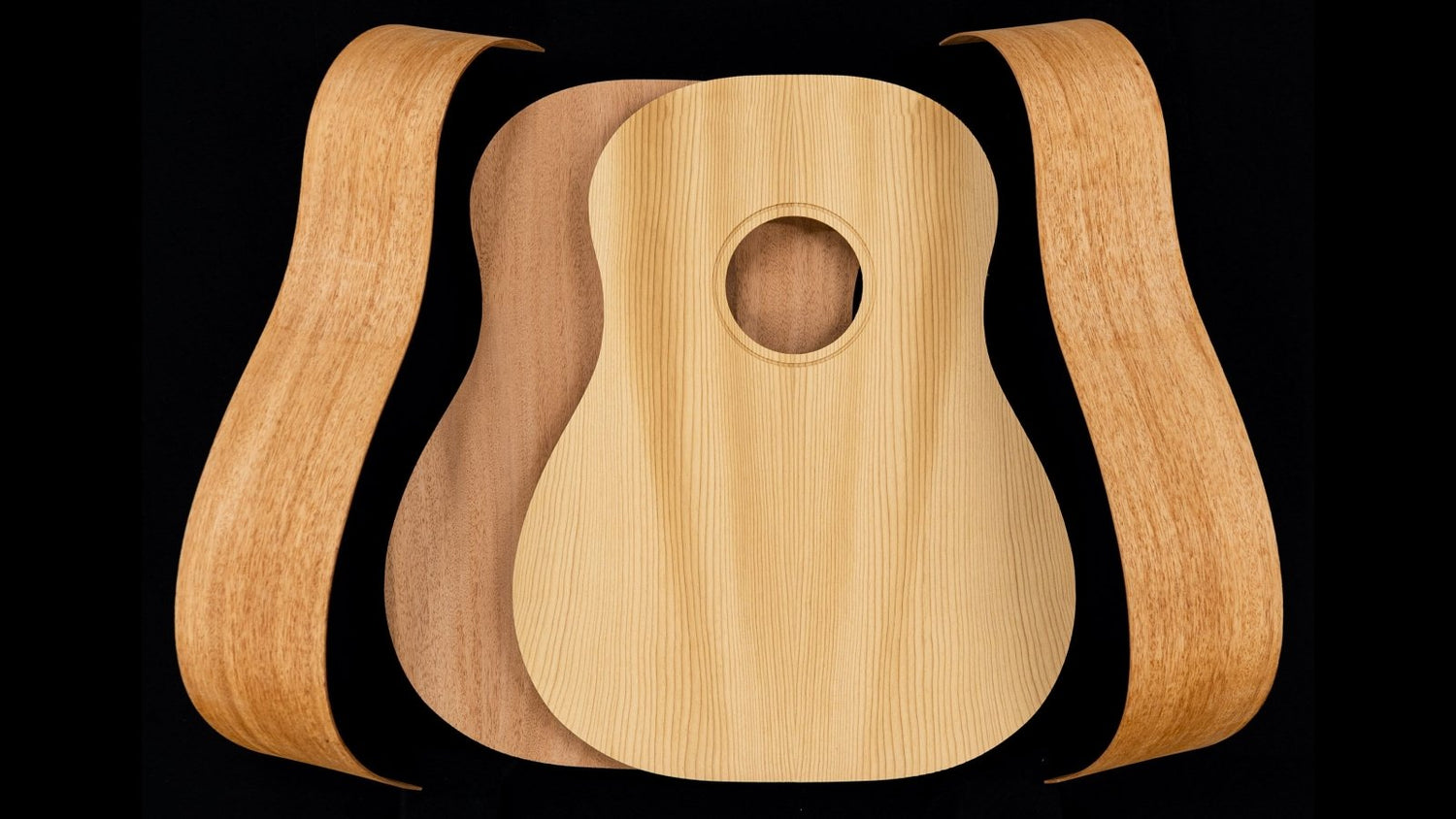A question I’m often asked is, “What is the best pickup for my acoustic guitar?” And like anything else, “best” is often extremely subjective.
A lot of people think that getting factory-installed electronics is the way to go. I believe a lot of this type of thinking came from Taylor Guitars putting their own pickup system in every single model they make and doing a great job of marketing that to the consumer.
Oddly enough, most people I’ve spoken to have been extremely disappointed with the ES system that they put into Taylor guitars (your mileage may vary). But the truth is, there really is not any need or benefit to having factory-installed electronics because there are so many wonderful choices on the market today. Not only that, but because technology keeps advancing, you may want to change your pickup system in a couple of years to a superior product.
Now let’s get into some of the options that you have when choosing your own pickup system for your acoustic guitar.
Undersaddle pickups are the most common and are usually a piezo type. A bit of trivia is that the piezo pickup was originally designed for being built into roads to pick up the sound of traffic, and was later adapted for musical instruments. Its original intention was never to amplify an acoustic guitar. The upside to a piezo-type pickup is that it’s pretty much bulletproof when it comes to feedback resistance. The downside is that they tend to have a nasally or quacky sound and do not really sound like your guitar sounds unplugged.
Companies like L.R. Baggs and Fishman, among others, offer these simple undersaddle piezo pickups at a reasonable price. But these same companies typically have options to add in some other type of condenser mic to try and blend in a more natural sound with the piezo quackiness. Some players have told me they don’t mind the quack, because it cuts through the mix when they are on stage. But if you’re more of a purist and looking for a more natural sound, then I recommend avoiding these types of pickups.
K&K on the other hand, has made their mark on the acoustic market with what they call the Pure Mini. This is one of the least expensive solutions and it’s installed by gluing three transducers to the underside of the bridge. While K&K does have a multitude of more advanced systems, like the Trinity, including condenser mics, by far their most popular is the Pure Mini.
For the most natural sounding pickup, you’ll want to check out the Schertler MAG-AG6 with optional S-MIC. Not only is this a noninvasive, soundhole-mounted pickup, but it is superior in almost every way to anything else you’ve heard. The Schertler MAG-AG6 has six individual magnets, one for each string, that is specifically tuned to the frequency of each string, with seven class A preamps, one for each magnet and one for the optional studio-quality condenser mic. On stage you may only be able to use about 10 percent of the mic, but if you’re using in-ears or recording in the studio you can run the mic at 100 percent.
This, in my opinion, gets you as close as humanly possible as simply standing in front of a microphone. Ultimately, we live in a golden age for acoustic guitars and amplification, and you have a lot of good choices available. Just always consider whether the pickup is going to be a permanent installation and if it will mean permanent changes to the body or saddle of your guitar. Then, let your ears be your guide.






2 comments
I would suggest you try a contact microphone like the Schertler Dyn-G
Good trivia. After trying many types of pickups plus combos through out the years I just want to add how a nylon guitar amplification seems to be a way more difficult task to amplify than a steel string instrument. Volume and clearity is also a big consideration and hexaphonic pickups were created but quackiness exists still.